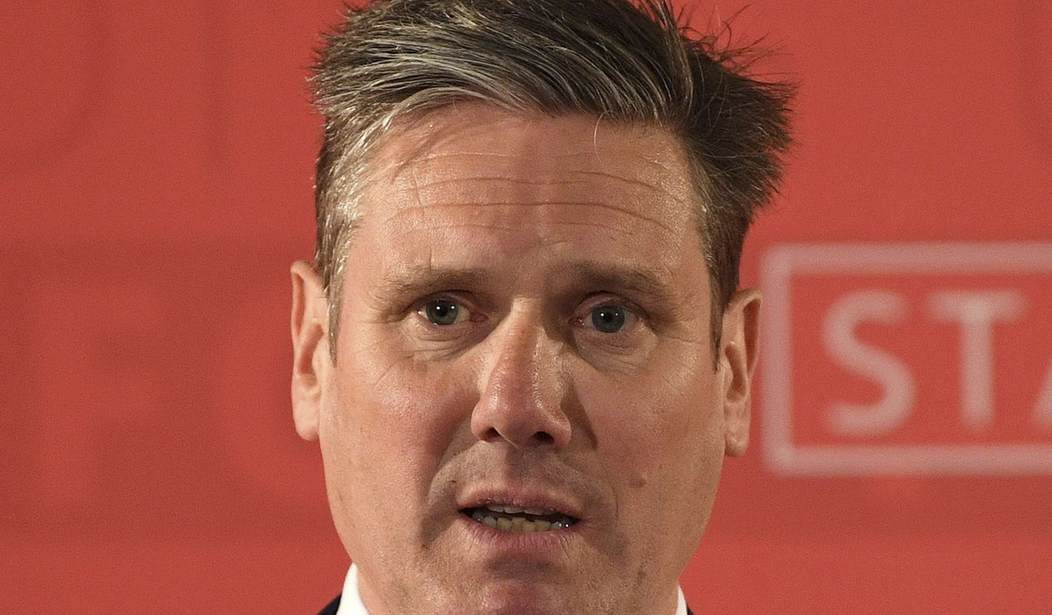The UK election is official, and it’s all over but the shouting — and finger-pointing. With only two parliamentary seats left to declare their vote totals, Labour has won 412 seats to the Conservatives’ 121. A handful of other parties and independent candidates claimed the remaining 115 seats.
Some of the Tories’ most conservative members lost their seats, including Jacob Rees-Mogg and former prime minister Liz Truss. The Tories lost every single seat in Wales. It was such a drubbing that experts predict that now-former PM Rishi Sunak will resign as head of the Conservative Party as early as Friday.
“We said we would end the chaos, and we will. We said we would turn the page, and we have,” said new Prime Minister Keir Starmer in his victory speech. “Today we start the next chapter, begin the work of change, the mission of national renewal, and start to rebuild our country.”
Digging deeper into the numbers, the election is a mixed bag for Labour. The Spectator’s Fraser Nelson referred to it as a “Potemkin landslide.” He writes:
Something pretty big is missing from Labour’s historic landslide: voters. Keir Starmer is set to win 64 per cent of the seats but on only 33.8 per cent of the votes, the smallest vote share of any modern PM. Lower than the any of the (many) pollsters predicted. So Labour in 2024 has achieved just 1.6 percentage points higher than the Jeremy Corbyn calamity in 2019 – and less than Corbyn managed in 2017. ‘But for the rise of the Labour party in Scotland,’ says professor John Curtice, ‘we would be reporting that basically Labour’s vote has not changed from what it was in 2019.’ And that’s on the second-lowest turnout in democratic history. So where, then, is the supposed Starmer tsunami?
There certainly has been a Tory meltdown. Its vote share dropped from 44 to 24 per cent – by far the lowest in the party’s history. But remarkably, almost none of this seems to have gone to Labour. It went to parties that had no chance of winning seats outright (mainly Reform) but this means that Labour has been the main beneficiary. Let’s look at the share of the vote by election-winning parties.
Nelson points out that Starmer will come into office with the lowest vote share of any prime minister since 1832, the beginning of the UK’s “democratic era.” What Starmer was able to do was turn that share of votes into seats in Parliament, taking advantage of the country’s first-past-the-post system of voting, in which the winner only needs a plurality.
Related: UK Election Preview: How Brutal Will the Results Be for Conservatives?
“So never will you have seen a bigger disconnect between the number of votes, 34% of the number of seats, looking at 60, 65% at the moment,” Nelson said on Friday morning’s Coffee House Shots podcast. “Never will you have seen a Prime Minister come in with such a low popular mandate.”
Some of the smaller parties made waves, too. Voters gave the Scottish National Party a mere six seats, banishing it to regional party status and crushing the Scottish independence movement for years to come. Nigel Farage’s Reform UK didn’t simply play spoiler to the Tories; four of that party’s candidates, including Farage, won elections.
But the biggest question looming over the night is what will happen to the Conservative Party. The blame game has begun, as Katy Balls reports at The Spectator.
As the results have come in, it has been a sobering experience for Tory politicians. Some candidates describe themselves as feeling numb over the result. Others are simply angry they were put in this position — made to fight an election they thought was a bad idea. It’s not just the “big names” who have lost their seats, it’s the losses in areas that have been Conservative for 100 years, such as Chichester. Then there’s Reform gains in former Tory strongholds such as Great Yarmouth. It means the recriminations are well under way.
Former cabinet minister Brandon Lewis has hit out at Sunak’s decision to go for a July election — a decision he described as madness when many candidates had not been selected and the CCHQ machine was not ready. Former Scottish Conservative leader Ruth Davidson has blamed Sunak’s D-Day debacle for the party losing in some marginals. Robert Buckland — who lost his seat to Labour — laid the blame at the feet of colleagues such as Suella Braverman and “performance art politics”: “I’ve watched colleagues in the Conservative Party strike poses, write inflammatory op-eds and say stupid things they know have no evidence for instead of getting on with the job.”
The Spectator’s Kate Andrews lays the blame for the Tories’ brutal defeat at the hands of an anti-incumbent fervor that is sweeping the West. She sees this wave of voters’ desire for change as the catalyst for change in Europe as well as what looks like upcoming defeats for Joe Biden in the States and Justin Trudeau in Canada.
Whatever the reason for the loss — and there could be many — the Tories will be doing some soul-searching for a long time. Hopefully, they’ll be able to rebound by the time the next election rolls around in five years.










Join the conversation as a VIP Member